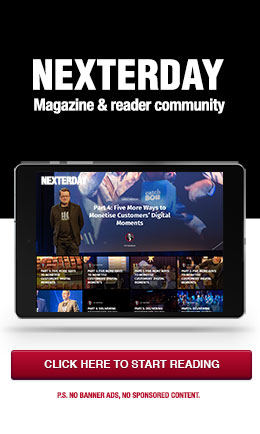Around the World
Posted: February 10th, 2012 | Author: OSS Team | Filed under: Around the World | Tags: 2012, 3G, Asia, bill shock, FCC, M2M, roaming, Singapore, telecom, Total Telecom | No Comments »Total Telecom…
Service Providers Must Think Creatively to Get Most Out of M2M
The automotive industry is one of the key drivers of M2M communications. This article explains that operators need to include additional services on top of M2M offerings in order for customers to get the most out of the technology.
Telefónica and Masternaut, for example, are using M2M communications to monitor driver behavior, such as braking and acceleration habits, for enterprises with large fleets of vehicles. On top of their service, they are offering an element that allows companies to rank their drivers and award a prize for the highest ranked depot within an organisation. By using the natural human instinct for competition, Telefónica and Masternaut are able to encourage safe driving.
Telefónica is not the only mobile operator looking closely at this space—many are interested in building an enablement framework that will allow them to reap the benefits of M2M technology. Do you see M2M being a major telecom trend in 2012?
ChannelNewsAsia…
Telcos May Spend More to Boost Network Capacity
This week, the Infocomm Development Authority (IDA) of Singapore introduced measures to boost the quality of 3G mobile services for subscribers. As of April 1, operators must ensure more than 99 percent coverage in outdoor areas and more than 85 percent coverage within buildings, with a less than one percent rate of dropped calls.
Due to these measures, Singapore telecom operators are focusing on improving their control of surging mobile data volumes, and are predicted to invest between $1.3 billion and $1.4 billion this year to boost their network capacity. This increase in capacity will be essential as the demand for faster data networks and LTE grows. The key for operators will be to guarantee a high quality of service in the wake of new regulations while also driving profits and preparing for the next phase of mobile broadband.
NPR…
How to Avoid ‘Bill Shock’ From Smartphone Use
For many Americans, using a cell phone while traveling abroad can result in ‘bill shock’ when they receive a stunningly large phone bill resulting from unanticipated roaming charges. To address this problem, the FCC will implement standards next spring requiring wireless carriers to provide timely and effective notice to consumers about expected roaming charges.
The new FCC regulations will present opportunities for CSPs to differentiate themselves on the customer experience front, by taking a closer look at improving billing services and personalised alert services. What do you think these new regulations will mean for the industry?





